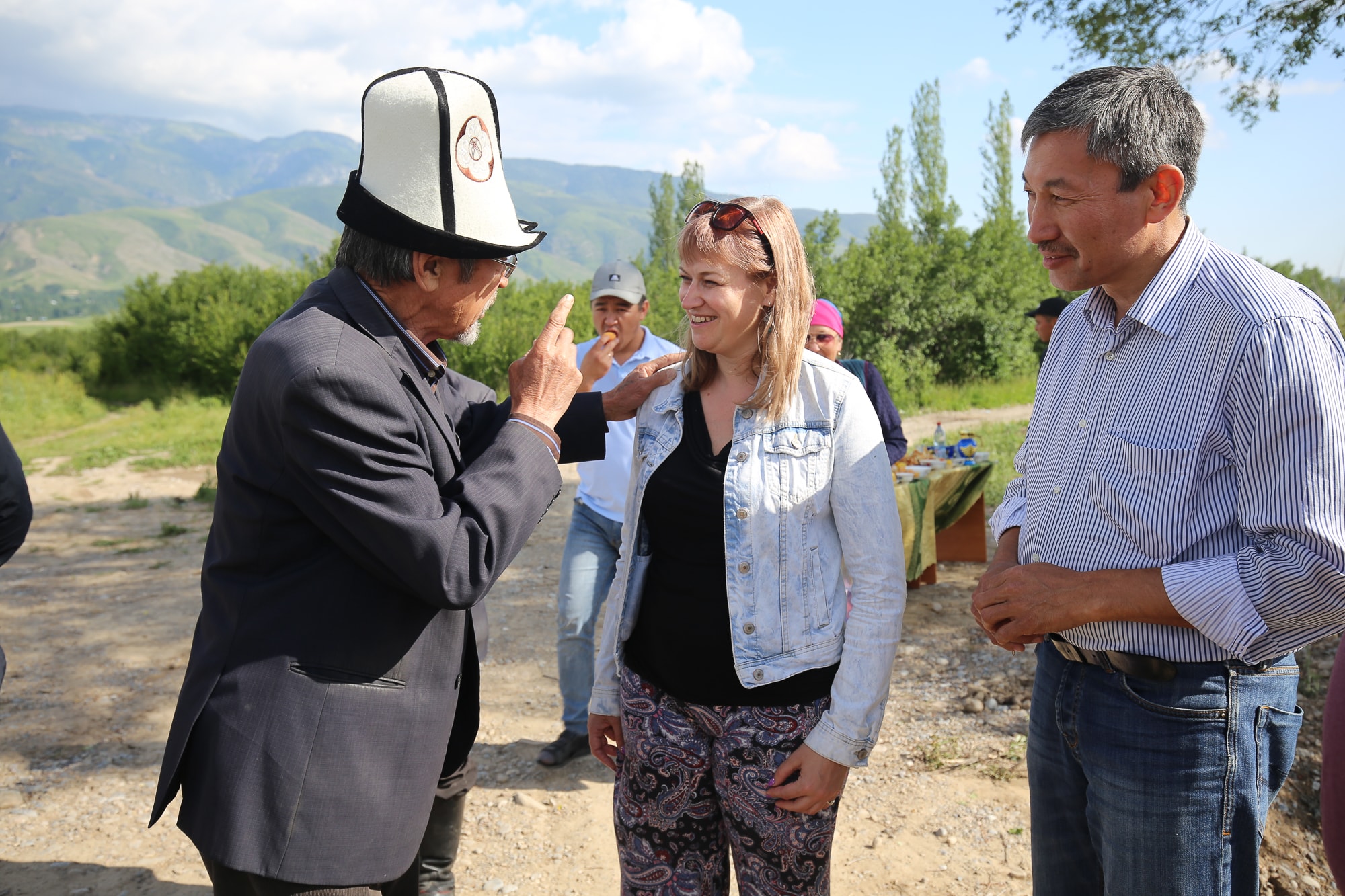
#SmartWatersGrandFinale
#SmartWaters_BehindtheScenes
#SmartWaters_News
Looking back, it’s the friendships that will take us forward
A final word from the USAID-funded Smart Waters Project Chief of Party, Ms. Ekaterina Strikeleva
“People from different countries, different basins, and different backgrounds became friends.” This will be the Smart Waters Project’s most enduring legacy, says Ekaterina Strikeleva, the project’s Chief of Party. “Even if everything in the region changes; even if there are new laws, regulations and strategies, these friendships will remain,” she says. “These personal connections will help countries when people sit down together around the negotiation table for water rights.”
For a wide-ranging project like Smart Waters, it’s difficult to highlight only a few achievements, says Ekaterina, but the personal growth that she has seen in people, and in their relationships with each other are some of the most important. Doranbek Mamadiev is a perfect example.
During Soviet times, Doranbek studied at one of the leading St. Petersburg Universities, where he obtained his degree in engineering, she says. “You can imagine how talented he is to have done that, coming from a small town in rural Kyrgyzstan.”
Currently the chairperson of the Isfara Small Basin Council (Kyrgyzstan), Doranbek has progressively become more immersed in project activities. “As he became more involved, he once told me that this project helped him think again.” I could see that he meant what he said, says Ekaterina. “Doranbek really thought about how to make the SBC sustainable; how to attract financial support to implement the basin plan; and how to continue the dialogue with neighbors from Tajikistan and Uzbekistan.”
“For me, this is our most important achievement.”
“Like Doranbek, people started seeing common issues like water management from new perspectives. They started seeing their neighbors as partners in water management, not as rivals for water. This is the most important measure of success for me. We have changed peoples’ mindsets, which can change cooperation and development of shared water resources.”
“It is impossible to count the value of these accomplishments in numbers, but the impact will be priceless, and will ripple throughout future generations.”
Looking back over the past five years that the project ran, Ekaterina says there is much to be proud of.
For one, Afghanistan was brought into the conversation about water management, with their Central Asian counterparts. “Personally, I think this was a big shortfall. Although we are only at the start of this new road together, all countries now recognize this need in the dialogue around water management issues in the region.”
A second achievement to be proud of is the establishment of the first ever basin councils in Turkmenistan, Afghanistan and Uzbekistan. “This proves that our methodology is unique and universally applicable for different circumstances.”
A third aspect is the networks that have been built among young water management specialists – our future ministers and decision makers – through the DKU master’s degree scholarships, says Ekaterina. “I believe that this will pave the way for comfortable conversations with each other, on a professional level, once they are working back at their own ministries. Friends will always find a compromise.”
Personally, highlights for Ekaterina are the interactions she has had with so many people throughout the project.
“This project gave me and my colleagues a unique opportunity to interact with people at very different levels of water resources management across the region – starting from our eight small transboundary watersheds, to the ministries at national level in all six project countries, to representatives of regional institutions, international experts, and more.”
“The opportunity to learn from people, and share vast amounts of knowledge from all over the world and the region has been a unique experience.”
As a final word, Ekaterina points out that finding compromises and mutually beneficial solutions are much better than to look for someone to take the blame.
“Stay on this path that we started together – search for compromises in all aspects of your lives, for the future development of our common region.” #USAID/CentralAsia
Smart Waters project is implemented by CAREC with the financial support of the United States Agency for International Development USAID during the period 2015-2020. Overall objective of the project is to enhance regional cooperation on shared water resources. Specifically, Smart Waters addresses the knowledge dis-lock in the region in water sector, builds working relations among water managers and specialists, and demonstrates the potential of the basin management approach and cooperation with the academia.

